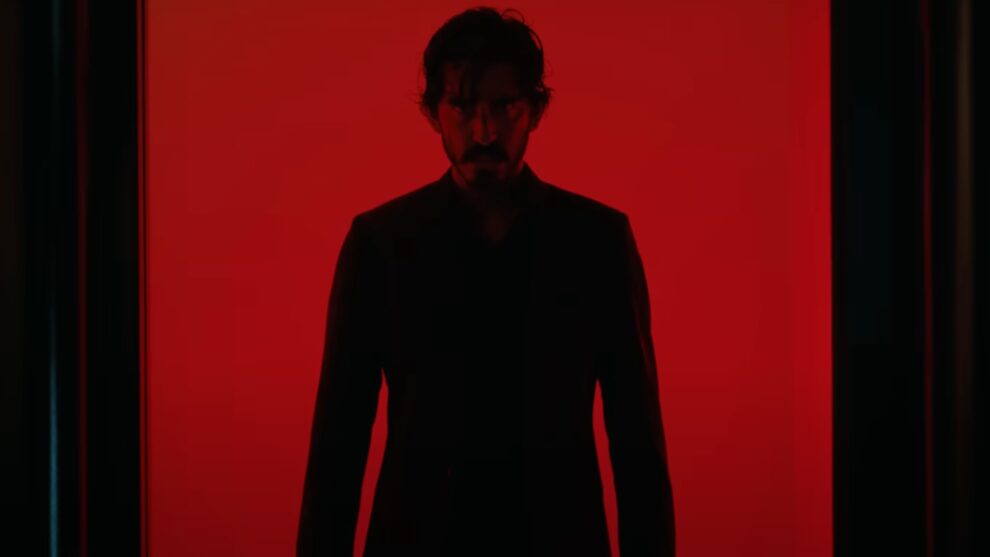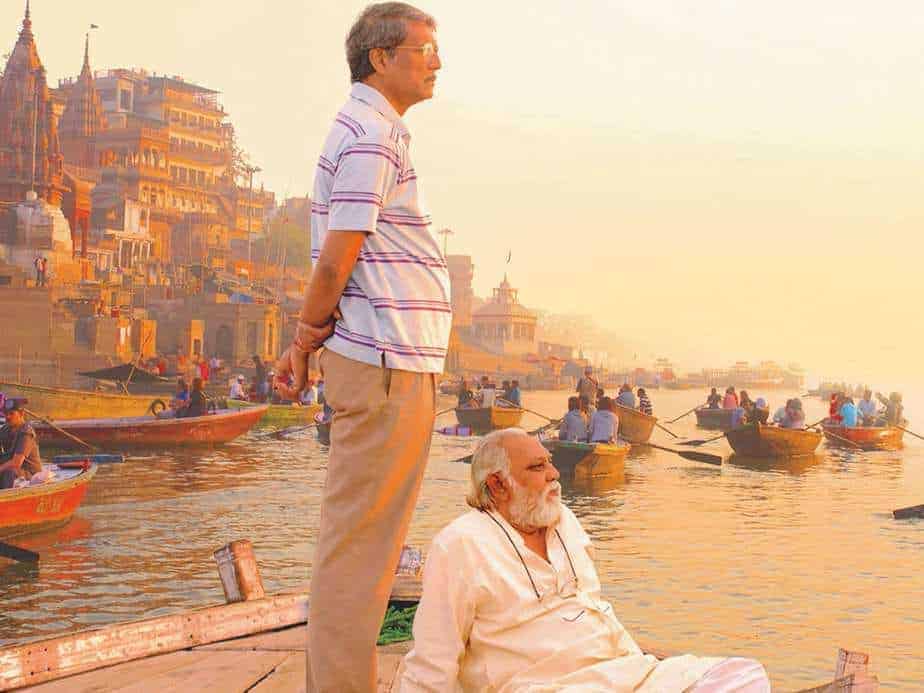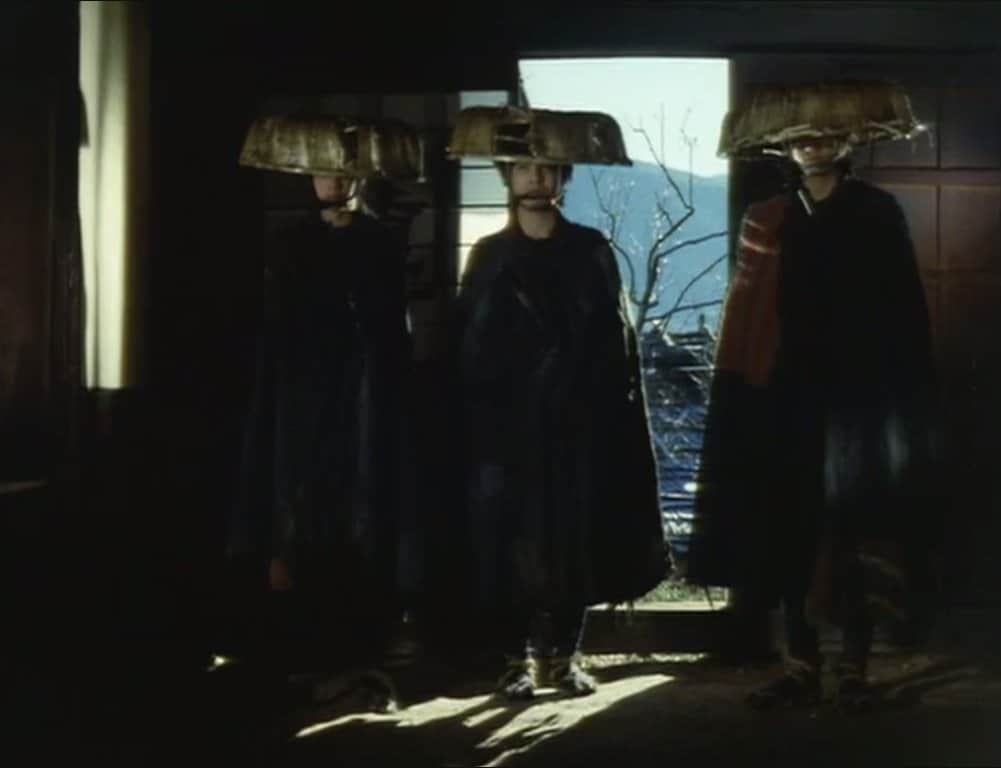The bridge between Indian and American action cinema has unfortunately yet to be built. There are throughlines between the two industries, that's for sure; recently, Siddharth Anand's “Fighter” borrowed the luscious aesthetics and jingoistic tone of the “Top Gun” franchise, and the work of Lokesh Kanagaraj wouldn't quite be the way it is without his trusty, robust list of North American favorites. But there has yet to be a film that solidly unifies the nations with an equal balance of what makes each industries' take on high-octane thrills so heady. That is perhaps until now, with Dev Patel's American-produced, Mumbai-set one-man-army action-extravaganza “Monkey Man” that pounds its chest onto screens around the world with unparalleled levels of energy, swagger and savagery.
Patel is Kid, a bottom-of-the-ladder bare-knuckle brawler who has gained a reputation as a fall guy; every wrestling match in Sharlto Copley's ‘Tiger Temple' ends with our hero spitting blood out of his latex monkey mask (a fierce avatar inspired by the story of primate god Hanuman) and walking away with a fistful of rupees. But whenever he leaves the ring, Kid has a dream: to work in the headquarters of the Sovereign political party, a place where the palms of the rich and powerful are greased and the future of the country is decided. Finding an in with Ashwini Kalsekar's foul-mouthed pimp Queenie, he starts washing pots and pans and cleaning up vomit, steadily moving up the chain until he brushes shoulders with the powers that be. Yet Kid's dreams aren't that of money and influence: they're of bloody vengeance.
There haven't been many opportunities for Patel to prove himself as an action lead; maybe the closest anyone came to giving him something of that caliber was Michael Winterbottom with his low-key arranged-marriage thriller, “The Wedding Guest”. Patel's answer to that snub is “Monkey Man”, a chance for him to lash together his cinematic influences (Sammo Hung, Jackie Chan, Bruce Lee, any number of Korean action thrillers) into a ripsnorting ride through the dark underbelly of India, while also carving out a fantastic role for himself as righteous revenge incarnate.
Patel's lanky figure and emotive face are ideal for Kid's wounded, determined character; much of the film sees him wrestling with his own past as well as a roster of burly henchmen, and it's no surprise that Patel's dramatic chops make the film hit hard in its quieter moments too. The real unexpected pleasure comes in how he utilizes his body to take and dole out some serious damage, with his lithe athletic frame moving with the speed of a cobra as he kicks, slaps and slams his way to get his man. He's a performer not afraid to get down and dirty either; many of the action highlights come from Kid using his teeth to bite off the nose of an enemy or to get a harder grip on a knife already three inches deep into a bad guy's throat. “Monkey Man” is frequently an eye-wateringly nasty film, but earns its brutality by carefully laying out a virtuous world worth fighting dirty for.
The fact that “Monkey Man” is a firmly modern and genuinely progressive film helps wash down the gritty gruesomeness nicely. Its villains use positions of political and religious power to their own narcissistic ends, letting seasoned performers like Makrand Deshpande and Sikandar Kher loose in roles as a suspicious cult leader and a sleazy police chief respectively. The word ‘temple' is loosely used throughout the film by the nefarious villains to describe places designed for profit and material gain, and the possibility of a landslide victory for a right-wing cabal is just as great a threat to Kid and his friends as the knives drawn at them. Patel carefully takes his time dropping in these details to create a nuanced view of modern India that results in a forward-thinking take on faith in 2024. The introduction of a cast of transgender characters (led by Vipin Sharma's Alpha) manifests an even-handed and empowered treatment of the marginalized in today's India, rooting their beliefs and costuming in devout Hinduism and appropriating the writings of the Bhagavad Gita into liberal, progressive ways of thinking. Their presence as hard-hitting Hindu warriors is a pleasant surprise in a film that takes place in a world of corruption and evil, and the inspiring allyship that Patel cultivates as a leading man and storyteller shows that even a film as ferocious as “Monkey Man” can be beautiful and empathetic.
Behind the camera and on the page, Patel is a remarkably assured writer-director. There are still definite signs that this is a debut feature; the action is occasionally formless and disorientating, relying on shaky-cam and close-ups that sometimes get lost in the flow of the action, and the drip-fed tragic backstory of Kid pads out the runtime and lets the pacing sag when the action is otherwise firing on all cylinders. Yet there are moments so astonishing throughout that the moments that don't work as well can be wholly forgiven. The first explosion of action explores every brutal avenue for grievous bodily harm, with a bathroom fight incorporating death by toilet, sink and fish tank by the time its breathless climax.
The wrestling matches are a far cry from the pageantry of WWE, positively reeking of blood, sweat and tears, and MCed with hilarious aplomb by Patel's “CHAPPiE” co-star Copley. As for the extended multi-level boss fight finale, Patel has so much fun going as scrappy as he can, lopping off fingers with silver platters and blasting fireworks at faceless goons to some of the hardest metal your ears will ever endure (everyone should be listening to New Delhi metal band Bloodywood right now), pushing his vision to the giddy heights of something as nuts as Timo Tjahjanto's “The Night Comes For Us”. Patel refusing to censor his tone or his gore is precisely what makes “Monkey Man” play so well to a crowd, provoking groans of disgust and pained pangs of laughter with each lethal kick to the head or arcing arterial burst from a poor goon who didn't stand a chance.
“Monkey Man”'s journey from production to screen has been a troubled one, facing COVID troubles and funding disputes that nearly tanked the entire venture. Scrambling tooth-and-nail to get the film shot for a Netflix release, former comedian and now leading horror auteur Jordan Peele saw great potential in it and secured the rights for a theatrical release with Universal. Now playing gloriously in theatres across the globe, Dev Patel's triumphant melding of Indian and American cinema has proven the best of both worlds can be enjoyed by the masses, all while elevating himself to a well-deserved new position as a bold director, scintillating storyteller and intimidating anti-hero all at once.
















